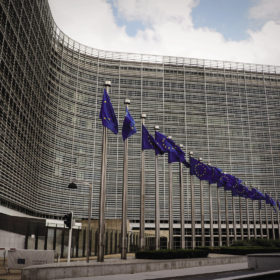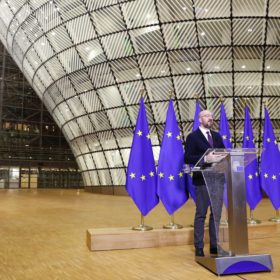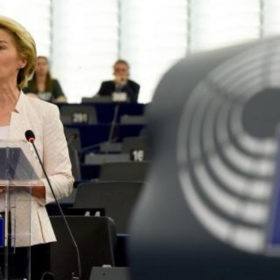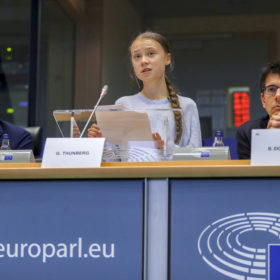The raw materials needed for the European Green Deal
A team tasked by the European Commission with estimating the raw material requirements of the European energy transition found if global PV roll-out is high, and the component requirements of certain solar technologies don’t improve by a greater margin, some elements could end up in short supply.
Europe can be 60% powered by solar before 2050
Perhaps it is not surprising a report co-produced by Europe’s solar industry places PV at the heart of a zero-carbon, mid-century energy system on the continent. However, the study does flesh out two out of three scenarios in which becoming carbon-neutral by 2050, or even 2040, could be possible.
European leaders push ‘Green Recovery’ plan for post-Covid economy
Political support for the idea of linking Covid-19 exit strategies to green policy appears to be mounting in EU institutions. Easter, appropriately enough, may have injected new life into the idea.
Covid-19 daily bulletin
pv magazine rounds up the latest Covid-19-related stories likely to affect the world of solar and energy storage.
European Council raises hopes of green stimulus package
The economic fallout of the Covid-19 outbreak is yet to be determined but as legislators scramble to establish fiscal support for the EU it is becoming clear the suits in Brussels are not prepared to scrap their hard-won Green Deal plan. Quite the opposite, in fact.
European Commission reveals circular economy plan amid Covid-19 storm
The trading bloc’s bureaucrats could be praised for grasping the nettle to transform manufacturing in a post-Covid-19 world or accused of burying another slew of red tape whilst member states are distracted, depending on your point of view.
European industrial strategy makes no mention of solar
The move has been welcomed as a step in the right direction by lobby group SolarPower Europe nevertheless, particularly as it envisages bringing together EU low-carbon businesses. The outline ambition will now be considered by the European Parliament.
EU climate law sets the stage for a green transformation
Although decried for lacking ambition and as an abdication of responsibility in some quarters, the climate law proposed by the European Commission may be more ambitious than it first appears, as Felicia Jackson, from the center for sustainable finance of the School of Oriental and African Studies at the University of London – considers here.
EU Climate Law dubbed a ‘surrender’ by Thunberg and a ‘disappointment’ by trade bodies and politicians
European Parliament groupings, renewable energy associations and climate activists have voiced disappointment at the EU Climate Law officially unveiled yesterday. Lack of a raised emission-reduction ambition to 2030 is at the heart of the opposition, with critics saying the plan will be insufficient to help prevent global temperatures rising more than 1.5 degrees Celsius.
EU climate law: Member states and interest groups demand more ambition
The European Commission today officially presented its Green Deal bill. Though the law has been welcomed in principle by environmental organizations, the provisions are not seen to be ambitious or concrete enough – and 12 EU member states already want to speed up decarbonization.







